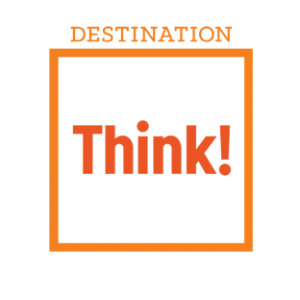May 2014
The Archives
-
Uncategorized
Be more strategic: ask WHY
Here’s an exercise you should do.
List the marketing activities in your DMO. Be very specific and tactical. Include things like
- running Facebook advertising
- managing the Facebook community
- create and maintain website content
- build a new website addition
- advertise on billboards in city X
- run banner ads on Tripadvisor
- run PPC/SEM ads
- build or maintain a mobile app
- organize industry training
- attend a tradeshow
Then list why do it. What’s the specific reason for the activity. Start with “to….”
Then list what the reason is for that.
Repeat step 3 until you list “to grow tourism in my destination”Example
- we run PPC ads
- why? to drive more visitors to our website who are looking for specific information
- why? to help people plan their trip
- why? to increases the likelihood they will visit our destination or enhance their trip experience
- why? to grow tourism in my destination
Another one
- we run Tripadvisor banner ads
- why? to intercept people who are in “trip planning” mode on Tripadvisor
- why? to make our destination a consideration
- why? to increase our changes for conversion
- why? to grow tourism in my destination
If you can’t credibly get to the last answer, you need to seriously consider if what you’re doing makes sense.
You should also really think about each step and evaluate of this is truly the case. Do the numbers indicate this? And what would the impact be if you wouldn’t do this? What would be the impact on the consumer? Is there an alternative for them? Are you doing some things because you’ve always done them? Or because you think your stakeholders demand it? Or because you need to outdo the DMO next door in some arbitrary number?
For example, what would happen if you didn’t run those PPC ads? Would people simply find the information elsewhere? Is that information elsewhere good if not better? Is the real reason for those ads because you need to report the number of website visitors? This is not attack on PPC campaigns by the way, they can be very effective.
Someone needs to ask these questions, for everything, regularly. It’s part of being strategic.
-
Internet, Marketing, Travel & Tourism
Unbundling the DMO web and mobile strategy

Last week Foursquare announced it is going to split its mobile application into two. One is focused on discovering new places and the other (Swarm) will be focused on helping users share their location with their friends. They join Dropbox, who unbundled photo storage in a separate app (Carousel), Facebook, who unbundled their chat functionality from their main app, and others. They also join other companies who offer apps such as HotelTonight and Uber who also focus on a single-use case.
Most DMOs have “one-size-fits-all” websites and mobile apps that cover everything, for everybody. It’s easier to build and maintain one website, template and its content. I used to hate microsites when I worked at Tourism BC for that very reason. But as a result, DMO websites are often big beasts that are inflexible, hard and expensive to maintain after all.
Things have changed. Technology is ambiguous. Content is incredibly fragmented and apps and services similarly specialized. Content is abundant. DMOs need to be storytellers. You’re still the experts in your destination. But instead of focusing on being the experts on what time a museum opens, be the expert on the context of your destination. You know: the culture, history and the people. Be the destination storyteller and add value.
What if we unbundle our destination into very specific niches and build incredibly targeted apps or web experiences (mobile first) for our users? What if we put somebody in charge of these applications who is just as passionate about the niche as your visitors? What if it includes real-time information and social integration?
For example: an app for foodies. Not just listings but the story of the restaurants including menus, profiles of the chefs, reviews from prominent bloggers (you hire to produce this content), information about local farmers and food from the destination, recommended itineraries, etc. An app that adds incredible value to the food experience. An app that tells the story of food in your destination before and during the trip.
Another example: architecture. I’m a bit of a fan of architecture but by no means an expert. I love to wander a city and look at the and wonder about the style, history, etc. What about an app that explains all this? That shows photos of buildings the way they looked when they were build? Stories about their history. The architect. The style. Walking routes. Things that add value. Things that make the destination experience better. An app that would make me stay an extra day after a business meeting, just to wander around and learn.
Or music! An app that tells you about the music scene. Interviews with bands and links to their tracks. The venues and their stories. Interviews with the owners. Real-time information about who’s playing where and why you might like them. Information about the scene around music. The record stores. The bars. An app that adds value to the destination experience. An app that gives you an instant feel for the scene before I go and an instant connection with it when I arrive.
Some are venturing in: Visit Oostende has created a Marvin Gaye iPad app of a walking tour through Oostende. Marvin Gaye lived in this Belgian coastal town for about a year and wrote and recorded “Sexual Healing” there. The DMO created a wonderful experiences for Marvin Gaye fans, fans into music and soul, as well as people curious about this piece of it’s history.
Do you need other examples? No.
It’s not just about listings. It’s about context. Unbundle for niches, talk to visitors in a more meaningful way.


